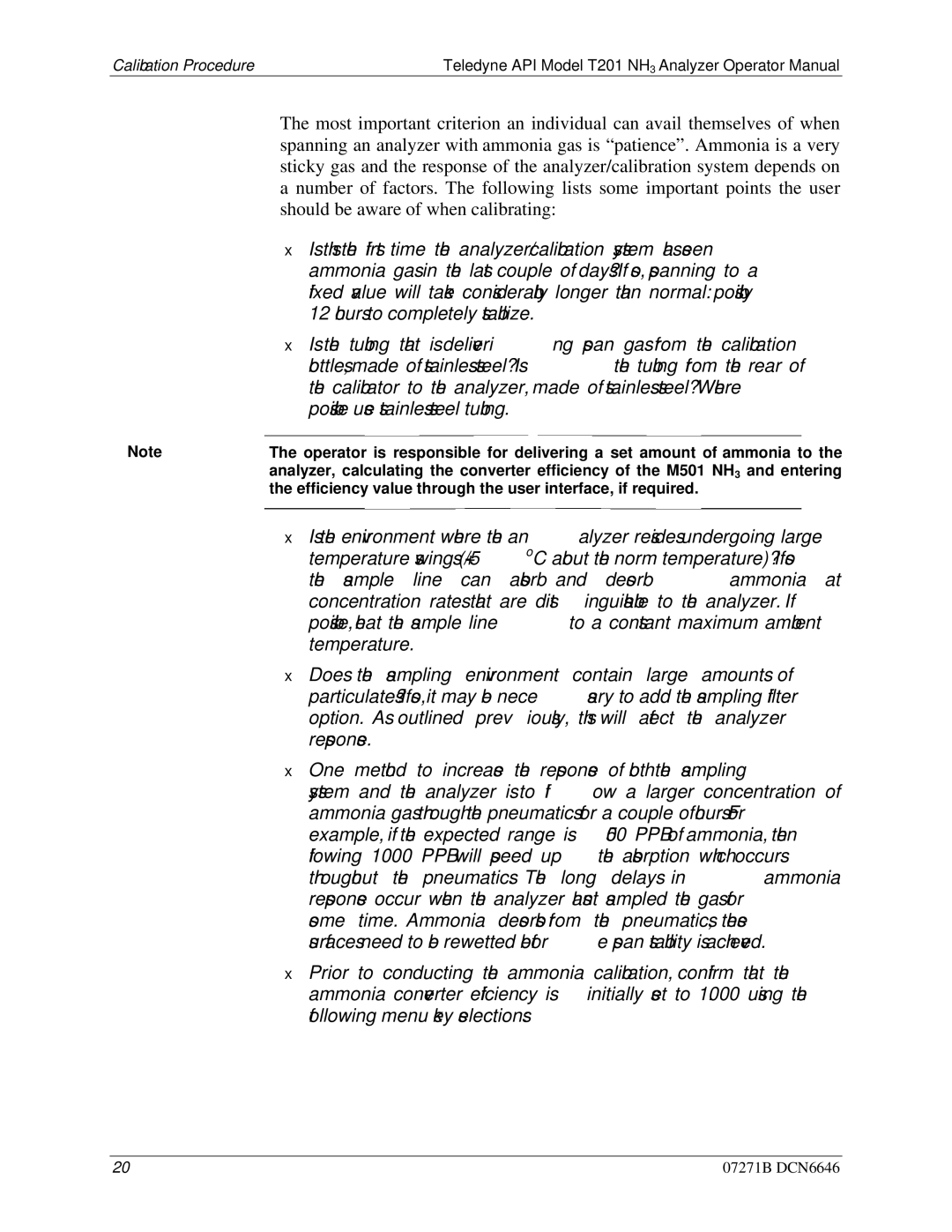
Calibration Procedure | Teledyne API Model T201 NH3 Analyzer Operator Manual |
The most important criterion an individual can avail themselves of when spanning an analyzer with ammonia gas is “patience”. Ammonia is a very sticky gas and the response of the analyzer/calibration system depends on a number of factors. The following lists some important points the user should be aware of when calibrating:
Is this the first time the analyzer/calibration system has seen ammonia gas in the last couple of days? If so, spanning to a fixed value will take considerably longer than normal: possibly 12 hours to completely stabilize.
Is the tubing that is delivering span gas from the calibration bottles, made of stainless steel? Is the tubing from the rear of the calibrator to the analyzer, made of stainless steel? Where possible use stainless steel tubing.
Note | The operator is responsible for delivering a set amount of ammonia to the |
| analyzer, calculating the converter efficiency of the M501 NH3 and entering |
| the efficiency value through the user interface, if required. |
Is the environment where the analyzer resides undergoing large temperature swings (+/- 5 oC about the norm temperature)? If so the sample line can absorb and desorb ammonia at concentration rates that are distinguishable to the analyzer. If possible, heat the sample line to a constant maximum ambient temperature.
Does the sampling environment contain large amounts of particulates? If so, it may be necessary to add the sampling filter option. As outlined previously, this will affect the analyzer response.
One method to increase the response of both the sampling system and the analyzer is to flow a larger concentration of ammonia gas through the pneumatics for a couple of hours. For example, if the expected range is 500 PPB of ammonia, then flowing 1000 PPB will speed up the absorption which occurs throughout the pneumatics. The long delays in ammonia response occur when the analyzer hasn’t sampled the gas for some time. Ammonia desorbs from the pneumatics, these surfaces need to be rewetted before span stability is achieved.
Prior to conducting the ammonia calibration, confirm that the ammonia converter efficiency is initially set to 1.000 using the following menu key selections:
20 | 07271B DCN6646 |
